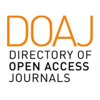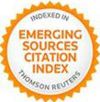Abstract
The paper describes the application of integrated methodologies for the reconstruction of functional aspects of archaeological pottery, through spatial analysis of ceramic functional categories by GIS tools and chemical analysis of organic residues by gas chromatography-mass spectrometry (GC-MS). The research focused on the pottery assemblages from the archaic building (6th century BC) identified in the Messapian settlement of Castello di Alceste (San Vito dei Normanni, Apulia, Italy). The application of integrated approaches contributed to better understand the role played by ceramics and their content in different functional areas.
Keywords
Full Text:
PDFDOI: http://dx.doi.org/10.2423/i22394303v8n1p139
References
Article Metrics
Metrics powered by PLOS ALM
Refbacks
- There are currently no refbacks.
Copyright (c) 2018 Florinda Notarstefano, Barbara Pecere, Grazia Semeraro

This work is licensed under a Creative Commons Attribution-NonCommercial-NoDerivatives 4.0 International License.
SCIRES-IT, e-ISSN 2239-4303
Journal founded by Virginia Valzano





